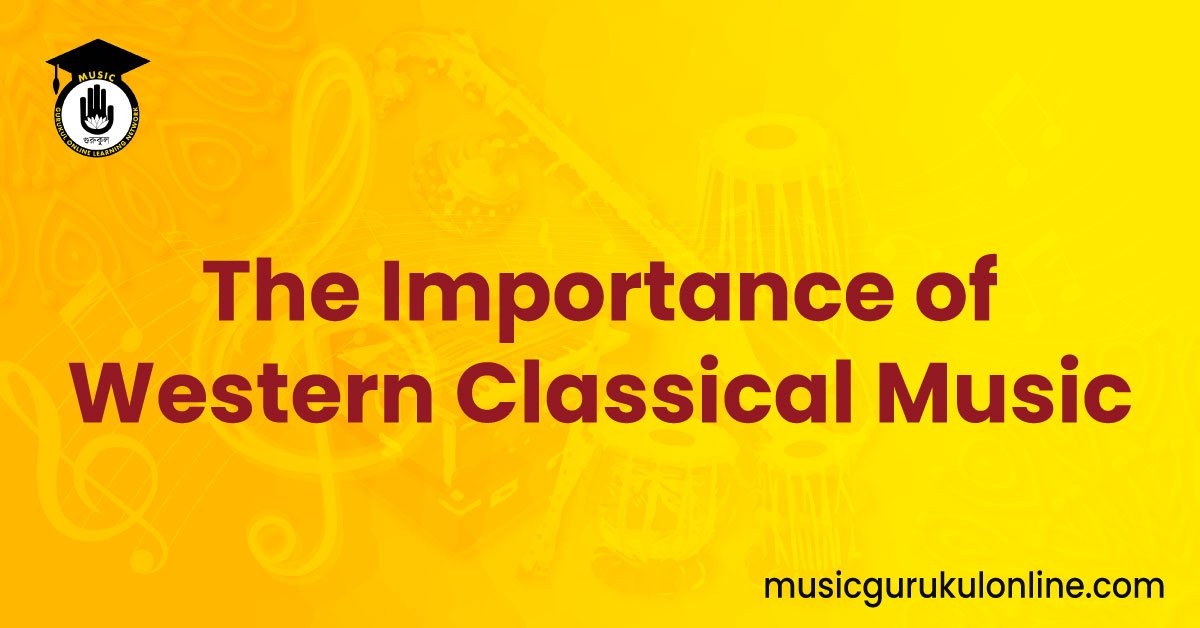Western classical music, a rich and diverse genre with roots that trace back over a millennium, has played a pivotal role in shaping the musical landscape of the world. Its vast repertoire, which spans from the medieval plainsong of monks to the complex symphonies of the 20th century, has not only influenced countless musical traditions but also reflected and impacted broader cultural, social, and political movements. This article delves into the profound importance of Western classical music in terms of its historical significance, cultural impact, influence on contemporary music, and its enduring legacy.
Table of Contents
The Importance of Western Classical Music

1. Historical Significance
Medieval & Renaissance Eras (500-1600 AD): Western classical music has its roots in the liturgical music of the medieval church. Gregorian Chant, characterized by its simple melody and sacred text, laid the foundation for the development of polyphony, where multiple independent melodies were sung simultaneously. By the Renaissance era, composers like Josquin des Prez began to experiment with harmonies, setting the stage for further musical advancements.
Baroque Era (1600-1750): This period brought about the birth of well-known forms like the opera, concerto, and sonata. Composers like Johann Sebastian Bach, George Frideric Handel, and Antonio Vivaldi championed this era with their intricate and expressive works, often reflecting the greater emphasis on individual expression during the Age of Enlightenment.
Classical Era (1750-1820): Here, the symphony and the string quartet became predominant forms. Composers like Wolfgang Amadeus Mozart, Franz Joseph Haydn, and Ludwig van Beethoven focused on clarity, order, and balance in their compositions, mirroring the intellectual movements of the time.
Romantic Era (1820-1910): Emotion and individualism were at the forefront. Composers like Johannes Brahms, Richard Wagner, and Pyotr Ilyich Tchaikovsky broke traditional boundaries, resulting in expansive and emotive pieces.
20th Century & Beyond: With the world undergoing rapid changes, classical music became even more diverse. Composers like Igor Stravinsky, Arnold Schoenberg, and Bela Bartok introduced innovations in rhythm, harmony, and texture, often reflecting the tumultuous world events of their time.
2. Cultural Impact
Classical music’s influence extends far beyond concert halls. It has:
- Inspired Visual Arts: Many painters, from the Romantic era onward, have been inspired by classical music. Wassily Kandinsky, for instance, tried to evoke the same emotions with his abstract paintings as one might feel listening to a symphony.
- Influenced Literature: Authors such as Marcel Proust and James Joyce have used classical music as a structural and thematic basis for their works, showcasing the deep connection between literature and music.
- Mirrored Societal Changes: Be it Beethoven’s “Eroica” Symphony, which reflects the ideals of heroism during the Napoleonic era, or Dmitri Shostakovich’s symphonies that covertly critiqued Soviet oppression, classical music has often mirrored or responded to societal changes.
3. Influence on Contemporary Music
From rock to pop, the footprint of classical music can be found everywhere:
- Progressive Rock: Bands like Yes, Emerson, Lake & Palmer, and Genesis drew heavily from classical motifs.
- Film Scores: Iconic composers such as John Williams and Hans Zimmer have often used classical structures and techniques to create memorable film music.
- Sampling in Pop Music: Artists from The Beatles to Lady Gaga have used samples from classical works, showcasing its enduring relevance.
4. Enduring Legacy and Continued Relevance
The benefits and importance of Western classical music in today’s society remain pronounced:
- Educational Value: Learning classical instruments has been linked to enhanced cognitive abilities in children, fostering skills like concentration, coordination, and discipline.
- Therapeutic Uses: Classical music, with its structured harmonies and rhythms, has been used in various therapeutic settings, from helping patients with Alzheimer’s to those dealing with stress.
- Cultural Diplomacy: Classical musicians often act as ambassadors, transcending political and cultural borders. Events such as Daniel Barenboim’s West-Eastern Divan Orchestra, comprising Israeli and Arab musicians, highlight music’s power to unite.

The importance of Western classical music cannot be understated. It is not just a relic of the past, but a living, breathing entity that continues to evolve, inspire, and resonate with people across the world. As we progress into an increasingly digital age, where the world feels more fragmented, the universal language of classical music serves as a reminder of our shared humanity, bridging divides and touching souls in profound ways.
